US, Israel slipped arms into Iran to wreak havoc during riots: FM
Iran's foreign minister says the United States and the Israeli regime slipped firearms past Iranian borders during the recent riots that took place across the Islamic Republic as means of wreaking havoc throughout the country.
Hossein Amir-Abdollahian made the remarks in an interview with National Public Radio (NPR), which is a network of around 900 public radio stations in the United States. The interview was conducted at the Iranian Foreign Ministry in Tehran by the radio channel's host Mary Louise Kelly on Wednesday.
"American and Israeli armaments [were] entered [into] the country via some of our less stable neighbors," he said.
"In fact, what they (the US and the Israeli regime) did was that they wreaked havoc among mobs and masses, and, in effect, resorted to the armaments in question [to further their goals]," the top diplomat noted.
The unrest broke out last year in Tehran and then spread across the country after the death of a young Iranian woman, named Mahsa Amini.
Amini, who had been taken to a police station in the Iranian capital to receive educational training on Hijab and dress code rules, was reported to have suddenly collapsed on the ground at the station and then put into an ambulance to be transferred to the hospital.
The police later released the CCTV footage of the young woman at the station, which fully confirmed the veracity of the law enforcement's reports on her death.
Amir-Abdollahian rejected the NPR's claim that "tens of thousands" had been arrested during the riots, and that "hundreds of people have been killed."
He rather put the number of the arrestees at "hundreds," identifying those who had been rounded up as only "those who had had a hand in the street riots," and affirming that no student had been apprehended either at the universities or on their premises.
Rejecting, what the NPR host referred to as an alleged hundreds-strong death toll during the riots, Amir-Abdollahian asserted, "The number of the fatalities during the riots have not been stated correctly," adding, "Despite intense tension during the riots, the [Iranian] police were not allowed to carry firearms."
Leader's pardon
Amir-Abdollahian, meanwhile, addressed the issue of a recent decree by Leader of the Islamic Revolution Ayatollah Seyyed Ali Khamenei, which allowed the pardoning of a considerable number of those who had been arrested during the unrest, attributing the decree to the Leader's "special attention to the issue of clemency and mercy."
Hundreds were pardoned and released on the back of the decree, the foreign minister said, "save for those who have committed murder or other serious crimes."
West's focus on Iran riots vs. its coverage of Abu Akleh's murder
Still addressing the issue of the West's excessive focus on the issue of the unrest in Iran, the senior diplomat asked how come Western media outlets would not accord the same amount of attention to the Israeli regime's murder of Shireen Abu Akleh.
The Al Jazeera journalist was shot in the head and killed by the Israeli army forces on May 11 while she was covering their raid on the Jenin refugee camp in the northern part of the Tel Aviv-occupied West Bank. At the time of her killing, the 51-year-old journalist was wearing easily-recognizable press attire.
Rebranding Iranian arrestees
Amir-Abdollahian refused to corroborate an account offered by Kelly about the alleged apprehension of journalists during the riots.
"It is very easy to rebrand someone who has been detained. At any moment in time, you can [choose to] call the person in question a human rights defender, a journalist, and things like that."
"No journalist was detained during riots. You see, just two weeks ago, something happened in Iran. A scammer was to flee Iran. What he did, in order to help his escape, was to post videos on social media saying that - claiming that he was a protester, that he was subjected to torture. But in fact, he was a scammer and a fraudulent person," the minister noted.
‘Clock ticking’: UNRWA slams unjustifiable killing of children in Gaza
BP to be sued in Britain for supplying oil to Israel
VIDEO | Press TV's news headlines
Israeli strikes on north Gaza hospital ‘extremely dangerous, terrifying’: Director
VIDEO | Yemen targets Tel Aviv with Palestine 2 missiles
Pezeshkian: Iran resolved to complete North-South Transport Corridor
VIDEO | Iran-Syria: For Resistance
Qassam Brigades claims killing 3 Israeli troops in northern Gaza


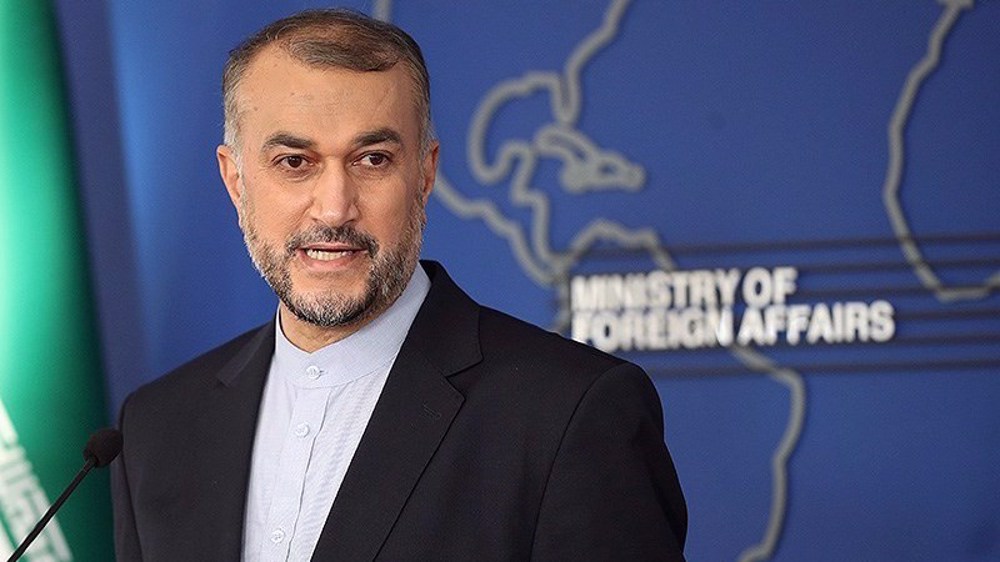
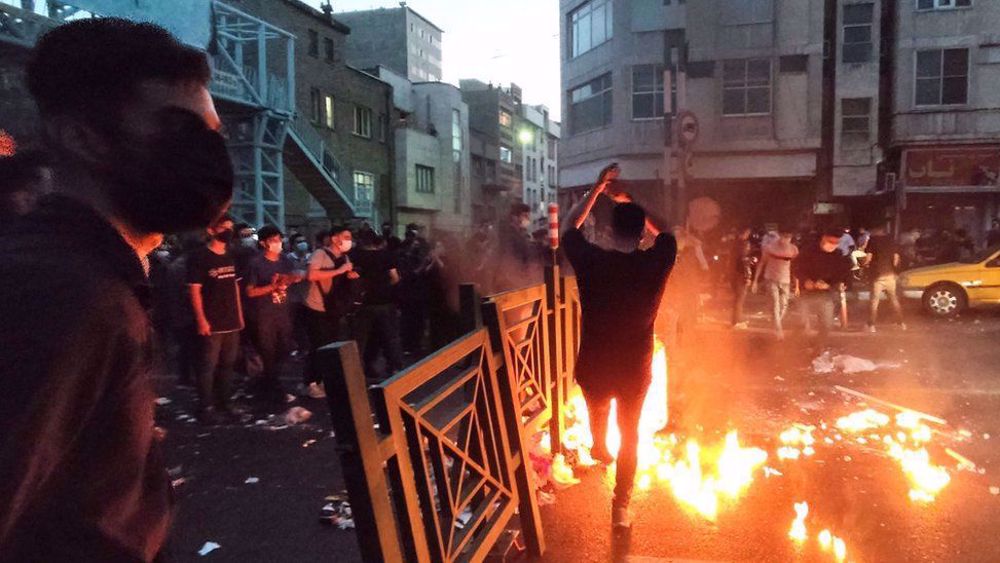
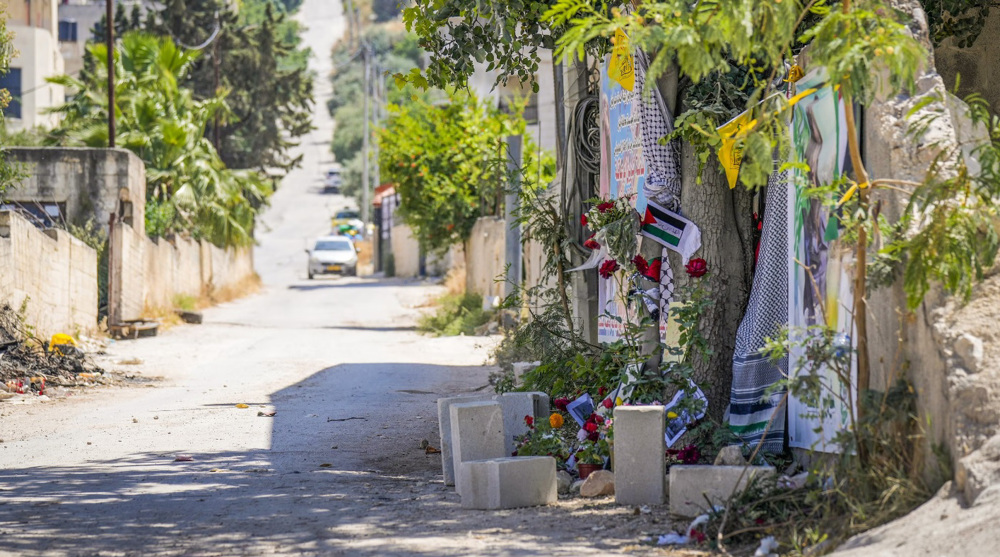
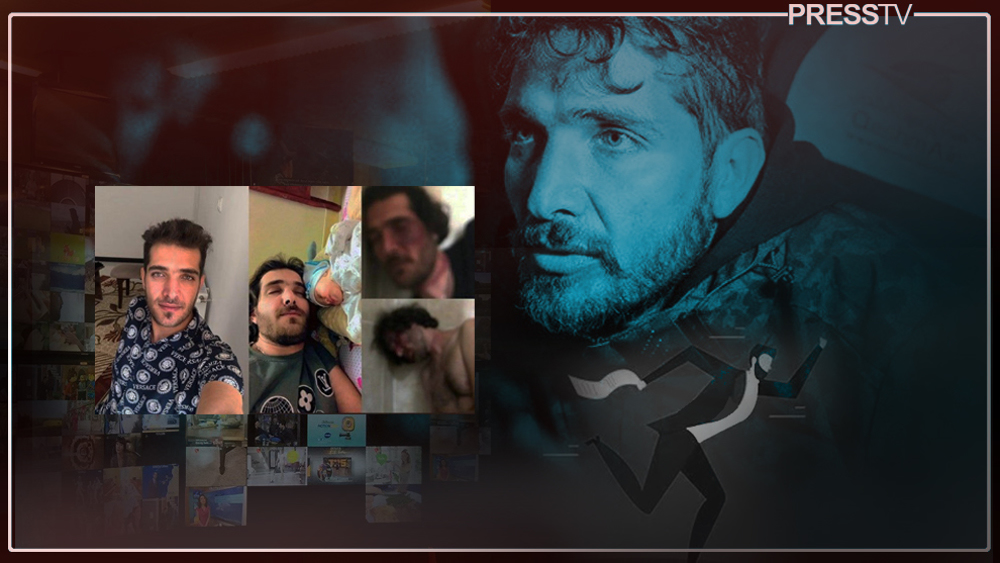
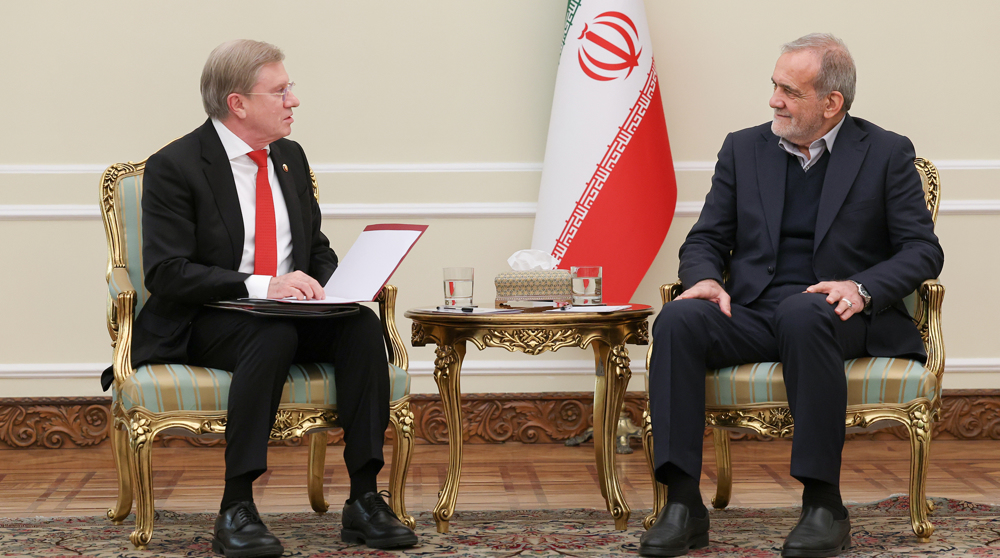
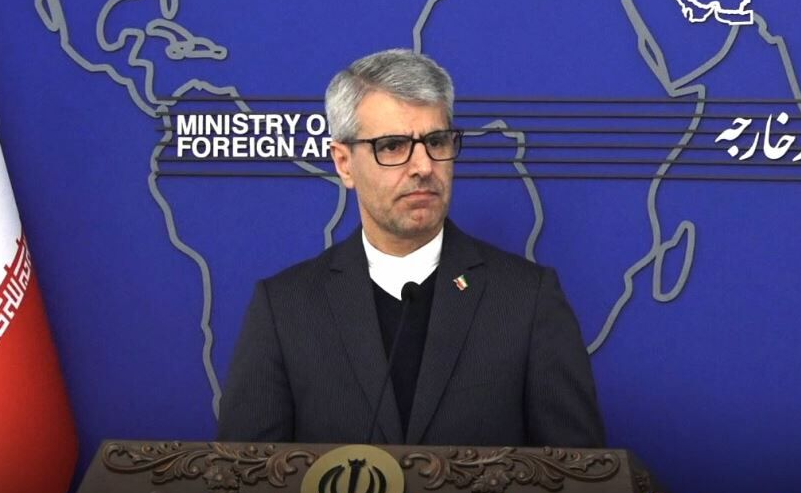
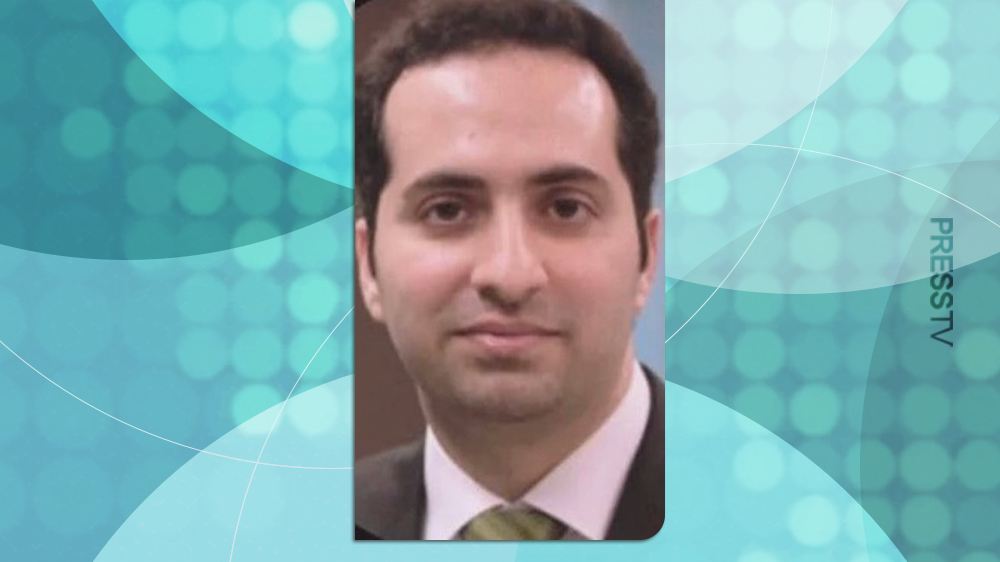



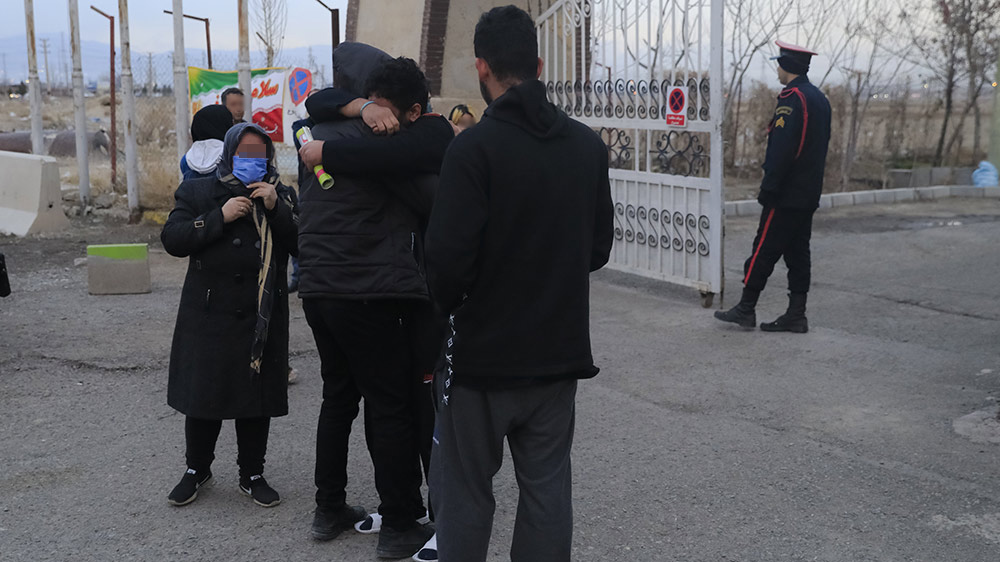
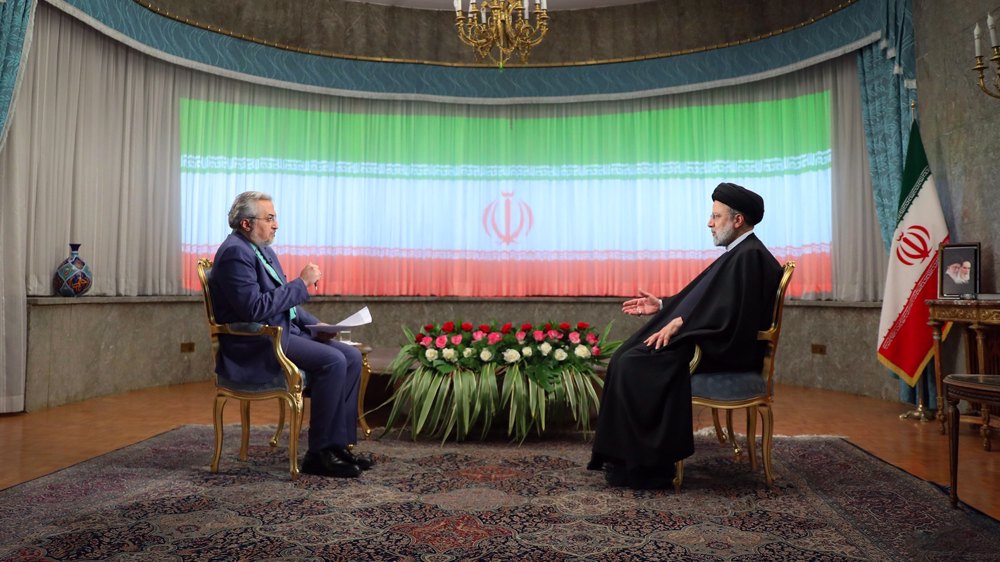
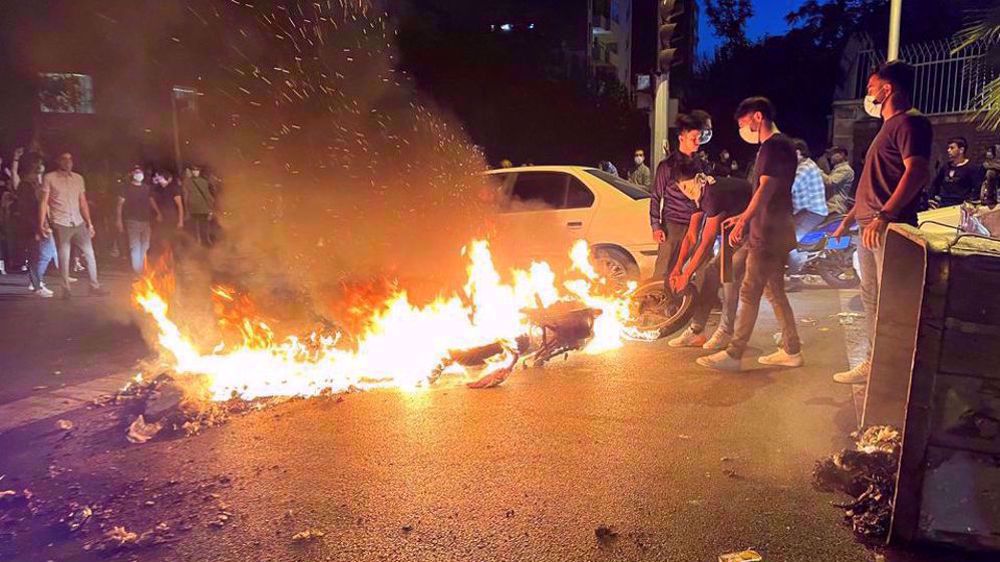

 This makes it easy to access the Press TV website
This makes it easy to access the Press TV website